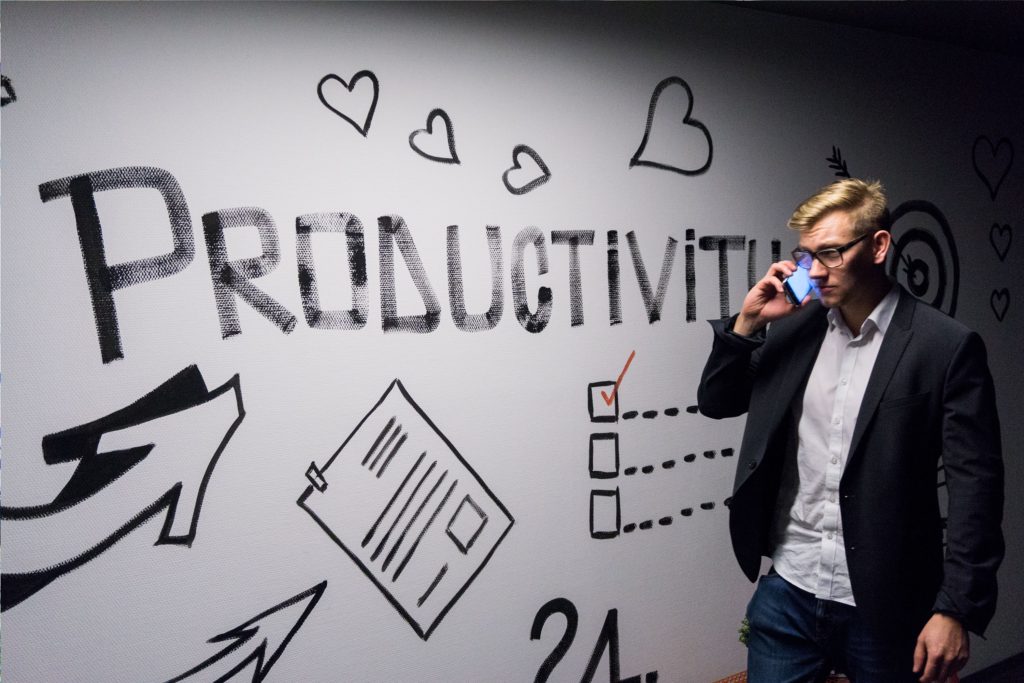How to be productive everyday
Is there some secret that highly productive people seem to know more than others? Or is it a group of skills and strategies that they’ve turned into habits and built into their daily routine?
To answer that question, we first need to understand what ‘productivity’ means. Being productive doesn’t mean being busy and overworked, it’s just the opposite. It means they’re driven by purpose and they know how to work smarter, and not harder. For example instead of answering 100 emails and waste 2 hours, you can create an auto-responder to reduce the volume of your emails and save time.
Procrastination is like a virus; easy to catch but hard to get rid of. You make a list of excuses and go from one to another. But once you’ve broken that bad habit and broken out of your shell, you’ll discover that being productive is one of the best feelings in the world.
Here are 8 tips which you can use to turn into habits and become more productive everyday.
1. Create an early morning routine
Studies have proven that those who wake up early are 60% more productive. They’re more energetic, creative, and hands-on. Getting an early start on the day means you’re less likely to procrastinate. You get a chance to exercise, meditate, drink a great cup of coffee, plan your day and enjoy some precious ‘me’ time before heading off to work.
If you wake up late and have to rush through everything, you’ll probably feel like the day is going to go from bad to worse. But if you have a routine set up, starting from when you wake up, what you’re going to wear, what you’re going to eat, when you go to bed – then that eliminates that feeling of despair.
Start with little things in your day, like planning your meals for the day or week even, and it becomes easier to get more things done throughout the day because you’ll know exactly what’s coming next. And the more you repeat it, the easier it becomes. Add to that 7 to 8 hours of quality sleep and regular exercise which are both great productivity boosters.

2. Make lists and goals
Each day you get a new chance to learn and grow, and renew your goals. You face challenges and are able to see them from new angles and fresh perspectives. One way to do this is to write down your plans for the day, or, better yet, for the entire week. Writing down what you have to do during the week means you won’t easily forget deadlines. You also become more organized and detail-oriented.
You can plan your week on Sunday evening so that when Monday morning rolls around, you’re ready and prepared. Then with each task that gets done, cross it out. This way allows you to see your accomplishments and motivates you to get more done.
3. Tackle the hardest tasks when you’re at your most productive everyday
Most of us are more productive early in the day before noon which is why you should pick a big task and tackle it early in the morning. You’ll breathe a sigh of relief once they’re out of your way. This gives you the opportunity to leave the easier tasks for later in the day when you’re more likely to feel more relaxed. However, some people find they’re more productive after their lunch break, so play on your strengths and plan your day accordingly.
4. Get rid of distractions and take small breaks
Having the entire world at your fingertips day and night everywhere you go means you’re constantly being bombarded with news and information that create distractions and background noises that limit your ability to focus. One way to manage these distractions is to set a certain time to check emails and texts, rather than repeatedly during the day.
It may sound counterintuitive, but taking a break can actually help you re-focus. Your brain is wired to work in 60 minute increments, longer than that and your concentration lags. Every hour or so, take a step back away from your work and go for a walk, or meditate for 5 minutes. This will help you come back with fresh eyes. It also allows your brain to unwind which decreases stress levels and restores your energy.
5. Stay away from social media

When you enter the realm of social media, it’s like falling into an abyss – you can’t escape. It’s captivating, endless and time-consuming. And exhausting. Rarely has anyone ever gotten off Facebook and felt recharged and ready to get back to work. In fact, most of us feel like we need time to unwind and relax after reading all those mind-numbing posts and comments.
6. Use time wisely and limit multitasking
Successful people know that time is a valuable asset that can’t be wasted. If they’re commuting, they’re listening to podcasts or reading.
In this busy day and age, multitasking has become a normal part of our lives. We’re always busy juggling 4 or 5 things at once, thinking that this is the only way to get things done. The truth is, when you’re doing many things at once, it’ll only burn you out.
You may think you’re getting many things done at once, but the truth is none of it is getting your full attention so nothing is actually being accomplished as it should be. Things like constantly checking your email, going from one task to another without finishing either, answering phone calls – all these things force your brain to take some time – experts agree that it’s close to 15 minutes – to readjust to the new task. This means you lose brain power, and anything you’ve been focusing on goes down the drain.
Instead, what you should be doing is focusing on one task at a time; give it all your attention, before moving on to the next. That’s how you become more productive everyday, increase the quality of your work while reducing stress and anxiety.
7. Know your strengths and weaknesses
Facing your weaknesses is just as important as playing up to your strengths. Delegating is a vital example of this. Sometimes in a work environment, someone may be better at doing something more than you, as an alternative to being a control freak and trying to get everything done yourself, you can break up a task into mini-tasks and pass them out accordingly. That’s the sign of a smart team player.
Trusting your intuition is also a big factor in knowing whether something is worth your time. If not, don’t be shy about saying ‘no’. Taking well-calculated risks is also part of being successful. And when things may not turn out the way you’d hoped, take the opportunity to learn from it then keep on moving forward.
8. Keep a balance between fun and work
While it’s important to have a successful career, it’s just as important to have fun and do the things you love to do with family and friends. Pick up an old hobby or find a new one. You can join a book club to meet new people, or do something on your own. When you do enjoyable things that stimulate you, it encourages your brain to release ‘happy hormones’. Stress levels go down and you start seeing life from a fresh perspective and become more proactive.
A final note
Now while it may seem difficult to implement all these tips at the same time, start with the one that seems easiest to you. After that, try another one. Anyone can optimize the hours in a day to make the most of them. All you have to do is they decided to follow a set of rules which quickly turned into daily habits. These habits became the driving force behind their success, and gave them the opportunity to achieve more on both personal and professional levels. Once you’ve felt how great being productive everyday is, you’ll feel excited about trying other ways to help increase productivity and boost energy.
